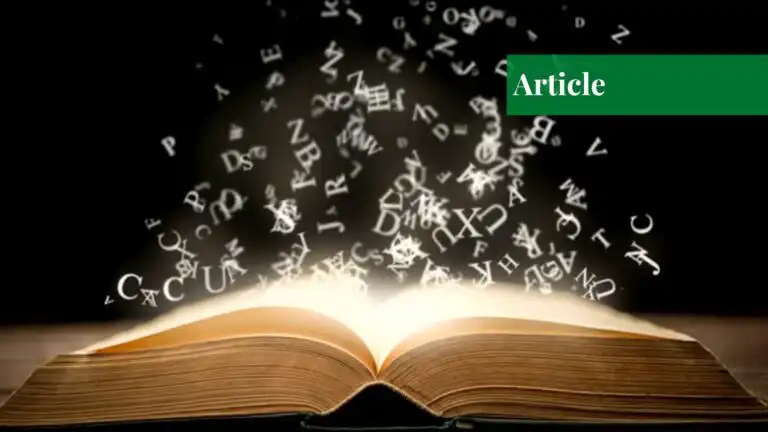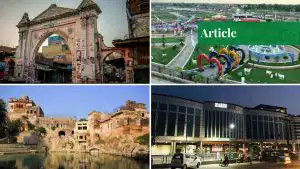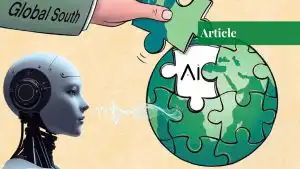Literature in a globalized world gives readers the chance to immerse themselves into the hearts and minds of individuals from varying cultures, backgrounds, and eras. But for a reader in Pakistan, this window to the world of literature is still rather restricted. The language barrier is the greatest restriction of all. Since many of the world’s classics and even some contemporary works are published in English or other non-local languages, finding quality translations in Urdu and other regional languages takes work. There exists, however, a chasm in the national reading culture as this language barrier limits worldly literary masterpieces from reaching a Pakistani audience. We don’t see many English literature books translated in Urdu. Why is that and how does it impact the readers and society?
The Language Barrier in Pakistan and Its Effect on Access to World Literature
A majority of the Pakistani population speaks Urdu or one out of many regional languages such as Punjabi, Pashto, Sindhi, and Balochi. Although English is spoken broadly here, alongside the government and private sector, it is also not a day-to-day common language for most. Because of this reality, if a book is published only in English, then a huge chunk of potential readers will automatically be overlooked.
Consider famous international writers, for example, Gabriel García Márquez, Haruki Murakami, or Virginia Woolf who have all engaged readers across the world. Their works are largely not translated in as careful and committed a manner into Urdu or regional languages as is the case in other countries. Where translations do exist, they are often patchy, and the unique culture or lyricism of the source narrative is lost to the reader. Often readers never even get a translation, and find that they must either settle for an English version, which is worse; or miss the work entirely.
The Publishing Industry’s Limited Support for Urdu Translations
Part of the reason for this gap lies within Pakistan’s publishing industry, which is generally limited in both resources and infrastructure to prioritize translation. Publishers in Pakistan are more interested in books with commercial viability, especially educational materials, religious literature, or the work of recognized local authors. The cost of producing good translations is high: you need not only capable translators but also editors who know both languages and ideally an editor that understands the context of the original work as well. Since the audience for international works may not be large enough to guarantee a return on investment, risk-averse publishing houses choose to avoid translating them altogether.
Translated books that do end up being printed are never made cheap enough to reach the average reader. These books typically have a higher price point, given their smaller print run and low demand compared with locally produced or secondhand books. Translated books are often out of reach for many readers, particularly students and young adults, who may well end up not picking them up at all because of the price tag.
Education and Cultural Attitudes Toward the English Language
Limited exposure to literature from around the world can be due to biased educational and cultural attitudes toward other languages. The literary canon is that schools teach a narrow range of local or colonial-era Anglophonic literature, thus lagging behind contemporary global literature. This creates a narrow reading spectrum, where English literature canons such as Shakespeare or Iqbal reign supreme, and influential global figures such as Toni Morrison, Gabriel García Márquez, or Chinua Achebe are all but unknown. This selective exposure creates literary taste and perception in readers, often leading to the notion that some perspectives or narratives resonate more than others. This disassociation results in readers not being exposed to narrative techniques, themes, and cultural elements of expression that global literature can provide, broadening perspectives.
Moreover, both English and Urdu medium schools do not stress “reading for pleasure” which results in keeping students away from the flavors of literature outside their academic books. In adulthood, this trend persists as reading for professional and technical advancement takes precedence over literature that enriches the human spirit.
The effect is an even further separation, with global voices staying unreachable for the average reader, losing out on different insights offered from varying cultural lines. Part of the problem might be due to cultural attitudes about literature itself.
Identity and the Perception of “Foreign” Literature
One of the causes that could explain the marginalization of global literature is its related perception as being “foreign” and therefore detached from local values. This has resulted in a strong revivalist sentiment to conserve culture and religion among the Pakistani elite classes who pride themselves on holding fast to local literature with an apprehension toward non-local or Western writings. Such a perception also solidifies the claims of international narratives not aligning with able customs and traditions in Pakistan.
But such an outlook can inadvertently create a cultural ghetto for readers who lose out on universal themes and human experiences that cut across cultures. The essence of human existence, love, conflict, morality, and endurance, are universal attributes that literature from near and far has addressed. Assuming that global literature is automatically “other” means denying Pakistani readers the opportunity to connect with tales from foreign cultures and experiences.
Solutions and Initiatives
Some enterprises are taking the first steps in redressing this gap in “world literature accessibility.” There are a few independent publishers and cultural organizations that have understood the importance of translation in Pakistan, thus striving to lessen this gap.
Collaborations with international literary organizations and translation funds may also support this goal. International grants, prizes, or joint ventures with overseas heads assist with translation and offer an affordable way for Pakistani publishers to invest in translation. Having literature from around the world pumped into school syllabuses would mean we’d be more familiar with these works at a younger age, potentially developing a passion for varied literature as students.
Another possible solution could be the use of digital platforms. Books have become more accessible globally in recent years due to e-books and online libraries, which open a door for translated literature. E-books (often free) cost less to create and distribute than tangible copies and are easy to download. Online platforms may bring greater access to a more diverse array of global literature. An online library of translated books is one such initiative that could help affordable, high-quality literature reach Pakistani readers.
Translated works can reach readers more easily through online platforms such as Project Gutenberg, Google Books, and e-library initiatives. Mobile apps that are designed specifically for a Pakistani audience with options for Urdu and regional languages could provide an alternative to readers who do not have access to physical bookshops or libraries.
Why Worldly Literature Matters for Pakistan
Global literature is not merely a mixture of foreign concepts but a process of acceptance to broaden your horizons, become acquainted with universal human experiences, and build compassion across cultures. Considering the cultural and educational impact, having access to such diverse literature could be more rewarding for a country like Pakistan if it is made available on shelves through quality translations. It might help build a more literate, thoughtful society with people who understand the value of multiple perspectives and are willing to grapple with ideas that come from outside their own borders.
This path to more universal access to global literature will demand concerted work from publishers, educators, and readers. The challenges are many, but the benefits, wider cultural exposure, increased creativity, and a more connected world, outweigh them. Pakistan, through translation and support for initiatives that localize global stories, stands to gain hugely from such a process, both in terms of its literary landscape and opening up doors to fresh ideas.
If you want to submit your articles and/or research papers, please check the Submissions page.
The views and opinions expressed in this article/paper are the author’s own and do not necessarily reflect the editorial position of Paradigm Shift.
Momina Areej is currently pursuing an MPhil in Clinical Pharmacy Practice. With a passion for writing, she covers diverse topics including world issues, literature reviews, and poetry, bringing insightful perspectives to each subject. Her writing blends critical analysis with creative expression, reflecting her broad interests and academic background.






